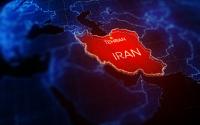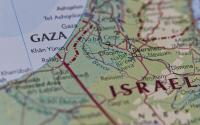Speech delivered on the floor of the US Senate
13 September 2005US Senator Robert Byrd
Chapter 3, Verses 1-8 of the Book of Ecclesiastes in the Bible begins, "To everything there is a season and a time for every purpose under heaven." It is time for a national debate, and its purpose is our country's future.
Sometimes it takes a catastrophe to put events into perspective -- to shake us and sharpen our clarity of vision. The wrath of Katrina, tragic and devastating for thousands, must certainly have caused many thinking Americans to consider anew the proper priorities for our country. Who among us has not wondered if the efforts to rescue and evacuate Gulf Coast residents suffered because too many National Guardsmen have been detailed and detained in Iraq? What thinking American has not pondered why we had such a painfully slow response to a behemoth storm which we knew for days would likely turn New Orleans into a cauldron of despair. Is there anyone in our great country that did not feel the painful outrage of the citizens of New Orleans and Louisiana and Mississippi as they waited for days without food and water or knowledge about loved ones?
Who among us did not shrink in dread from the specter of our fellow citizens' bodies floating in the murky flood waters or stacked in hospital stairwells for want of anywhere else to house them? Could this be happening in a major American city? Could we be so inept at dealing with this tragedy? The events of the past several days seem to have reduced our much touted American know-how and technology to little more than children's toys, strangely impotent in a real crisis. I know that many Americans cringed, as I did, at the vision of callous neglect of our poorest and most vulnerable citizens which flashed around the world, making the United States appear to be a nation unmindful of its own, a nation unable to handle a disaster about which it had ample notice, a country loudly touting our form of government to the world, while failing to provide even the most basic protections to our own citizens.
If Katrina has any redeeming impact, it must be to cause us to see ourselves as others must surely see us. I regret to say that the picture cannot be a pretty one. That image is certainly not one that reflects the humanitarian goodness and morality of the vast majority of the American people. The perception of the United States in these troubled times should be a cause of major concern for everyone who holds public office. Regardless of political party, it is time to look at where we are, and where we are going.
Few would now argue that the war in Iraq has improved the world's view of the United States. It was an unnecessary and ill-conceived conflict which distracted us from our proper course of bombing the terrorist training grounds of Afghanistan. I have never bought the absurd claim by some that we are fighting terrorists in Iraq so we will not have to fight them here at home. That claim is a non sequitur at best and, at worst, a patent distortion of what has happened in Iraq. The war in Iraq created a hot bed of terrorism where none existed before. And it insured Osama bin Laden an endless supply of recruits, now even more fanatic in their hatred after scandals at Abu Ghraib, and the destruction of so many innocent lives in Iraq as a result of our invasion.
"For everything there is a season. . ." sayeth the Bible. The season has come for Americans to look homeward. Instead of continuing to spend billions in Iraq, let us husband those our hard-earned tax dollars and spend them here at home. The Iraqi people must slowly find their own way now. Further U.S. dictated deadlines are counter productive. We cannot force-feed democracy to Iraq. To keep large numbers of American soldiers in Iraq much longer only earns the United States more enmity, reinforcing our unfortunate global image as conqueror not liberator. The Iraqi people must begin to take it from here. In fact, there is no longer a "war" in Iraq. We started that conflict and we met the goals established at its outset. Now there is a slow, festering, internal political struggle pitting Shiite against Sunni, against Kurd, which will play itself out, perhaps for decades, until it either devolves into outright civil war or resolves into some sort of compromise which suits those who live in the country of Iraq. We cannot resolve Iraq's internal issues. It is time for the United States to begin to bring our troops home.
The invasion of Iraq was never supposed to be an open-ended peacekeeping mission, with our troops mired amid the chaos of continuing urban warfare. We need to bring them home, with a hearty, "Job well done." We should begin with the National Guard. Obviously, they are needed here. They are an integral part of our first responder team in the event of a terrorist attack or if, God forbid, another natural disaster were to strike.
It is time to come home, America. Time to look within our own borders and within our own souls. There are many questions to be answered and many missions to accomplish right here on our own soil. We have neglected too much for too long in our own backyard. "To every thing there is a season, . . . a time to break down and a time to build up. . . ."
If we had spent the money a few years back to rebuild those levees on the Gulf Coast, thousands would be alive today. Perhaps we can finally see the value of that budgetary stepchild called public works. All across this country there are years of neglect of the basic infrastructure of the United States that cry out for attention. We have delayed for decades and the needs are only growing. There are antiquated sewer and water systems, built a century ago, in our major cities. Washington, D.C. has water not always safe to drink. Rural communities live with black mud coming out of their faucets. There are unsafe bridges, aging reservoirs, schools without adequate heat or modern learning tools all around our land. Homeland Security needs are underfunded. Yet, we continue to commit billions to rebuild Iraq, while our own needs go begging. Is it not now painfully evident to everyone that we must make basic investments in our own country a national and urgent priority?
Imagine a major terrorist attack on the heels of a catastrophe like Katrina. I have to believe that Osama or one of his henchmen is taking notes as we struggle with the devastation left in Katrina's wake.
Our economic resources are stretched dangerously thin, and so is our military might. We have taken on too much, turned our backs on cooperation with the international community, decided to go it alone and pursue some grandiose scheme of remaking the world in our own image. By now it should be clear to all that grand experiments are very, very costly. It is time for a national epiphany. The sound of Katrina's bugle must be heeded. We cannot continue to commit billions in Iraq when our own people are so much in need, not only now, in New Orleans, but all across America for everything from education to health care to homeland security to securing our own borders. We need to stop making excuses, stop spinning the facts, and come to grips with the unpleasant truth. The government of the United States is failing the American people.
Where is the national debate about our priorities which Katrina should prompt? What does it take to wake us up? It is a debate that must begin, if not on this Senate Floor, then in the barber shops and grocery stores of America and in the print and broadcast media of this great nation.
It is past time for that debate and high time for all of us to realize that there is nothing more patriotic than taking a good, hard, honest look at our national priorities. We the people always have that right. A strong republic depends upon just that kind of periodic soul-searching. Does our moral sense of ourselves translate into government policies? I believe that, presently, it does not. We have a disconnect in government policy in everything from a tarnished U.S. image abroad to a failure to address gasoline shortages, and skyrocketing prices that will certainly slow our economic engine and take their toll on working people. Instead of asking the public not to buy more gas than needed, I wish somebody would ask the giant oil companies to pass up some profits and help hold down gas prices as a patriotic gesture for our country. Would that be so outrageous? And why have we not had the vision to invest in alternative energy sources on a grand scale to free us from the addiction to foreign oil?
For too long our great land has been allowed to drift toward balkanization - - a separation between the haves and have nots, with the lower end of the income scale at risk from a tattered safety net, and a neglected infrastructure, lacking the jobs and the housing they need, the health care to stay well, the insurance to cover hospital stays, or the educational opportunity to prepare for the future. I remember an America that used to feel more like one country - - an America that shared the sacrifice of war, and tightened its belt so we could pay for it. Now we borrow to go to war, and cut taxes to spare those in high brackets from sacrifice. Where is the sense of shared destiny? It has taken nature's own weapon of mass destruction, a category 4 hurricane, to remind us that we are all Americans, and that our government has a moral obligation to serve us all.
This country is on the wrong track and the course needs correcting. Continued denial serves no good purpose. Further loss of American life in Iraq may permanently sour the American people on future military action, and damage recruitment for our all-volunteer force. "To every thing there is a season, . . . a time to kill, and a time to heal. . . ." We have seen the fallacy of sending too many members of the National Guard to the Middle East. As I speak, we have lost 1,886 sons and daughters in Iraq and there seems to be no end in sight. We have 137,000 troops still serving in Iraq with 2,000 more scheduled to go in in October. We are building at least four semi-permanent bases in Iraq structured to hold 18,000 troops each. That does not sound like "staying not one day longer than needed" to me.
In truth, most Americans no longer support a massive deployment in Iraq. Nor do they understand the mission of that continued deployment. Despite repeated directives by the Congress, the "powers that be" refuse to actually budget for Iraq, so that a total picture of our fiscal situation is deliberately obscured. We are driving our country ever deeper into debt, and stretching every resource we possess to the breaking point. Prudence demands that we reassess our posture. Our inept and pathetic response to Katrina has underlined our vulnerabilities and writ them large before the world. The American people deserve better than this.
I call upon the leaders of this country to come together and to work together to repair our storm-ravaged Gulf Coast and help salvage the lives of its victims, but more than that. I call upon the Congress to inventory our homeland with an eye to the future. Let us look around America and target our deficiencies. Let us work with state and local communities to shore up our weaknesses. We must react in a crisis, of course, but, for God's sake, let us finally understand that we must also anticipate the future, and be unafraid to commit the resources to make us strong at home. The lesson of Katrina most surely is that an ounce of prevention is worth several tons of cure. And we need to also learn that we cannot long remain a world power if we continue to let America crumble from within. The alarm bells are sounding and we must answer the call. This is no time to play for partisan advantage. This is certainly not the season to circle the wagons and hunker down. We need not stretch our brains to write new talking points or invent new excuses. And please, oh please, let us not resort to the trusty bureaucratic ruse of simply reorganizing government agencies once again.
It is time for real leadership. It is the season for true humility. The Bible says, "Pride goeth before destruction, and an haughty spirit before a fall." For years we have been getting it wrong in Washington, but if we have the will, we can begin to get it right. The American people deserve leaders with the honesty to take responsibility for failures, and the wisdom to change when change is so obviously and urgently needed. May God grant us the grace.






